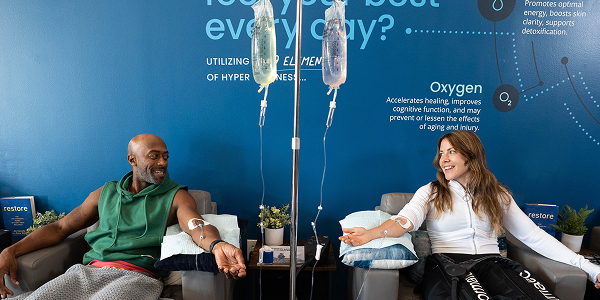Taking care of yourself during the holiday season involves good boundaries and stress reduction. Unfortunately, holidays can be a point of contention from pent-up emotion.
One holiday, I really reached my limit. I'm embarrassed to admit I screamed out my grandparents' balcony window, much to my family's dismay. The nitpicky holiday pressures and not-so-benign familial criticism pushed me to the edge. Since then, I've learned a couple of lessons for coping with holiday overwhelm more effectively.
Adding extra tasks like meal prepping, gift shopping, and party-planning to an already jam-packed schedule is a time-worn tradition–guaranteed to add stress and possibly resentment. Yet, connecting with family, friends, and chosen family is the social connection we need more than ever in our tech-laden world. Try these life-saving tips to get through the holidays and actually enjoy this time of year.
Holiday Coping Lifeline
1. Get enough sleep
We know this sometimes seems impossible. Nevertheless, the National Sleep Foundation says to strive for 7-9 hours of sleep nightly. Think of it as the key to your happiness, longevity, and enjoyment. Think of it as the water to your plant. Without it, your stress and fatigue will increase, and your energy and focus will decline.
Tips:
- Plan your day backward.
- Write down what you think you need or want to do for the day.
- Estimate how long it will take to do each task.
- Pick a bedtime, like it is a non-negotiable clock-in time where you must be in bed.
- Prioritize activities and tasks, so your bedtime is attainable.
2. Hydrate
Drink about an ounce of water per pound you weigh. For example, if you weigh 160 pounds, you must drink about 160 ounces, or approximately 4.7 liters of water, daily.
Tip: Always keep a (full) water bottle with you. Make sure it's full of water–not alcohol, no matter how stressed you are! Try containers with a straw for more effortless sipping.
3. Avoid alcohol or limit it
Alcohol isn't great for your body since it's a dehydrating and mood-altering substance. Effects from alcohol can impact your nervous system for days after since it's a depressant. Of course, occasional indulging is okay--everything in moderation. So when you imbibe, keep it at a minimum. A single serving of alcohol is 1.5 ounces of hard liquor, 5 ounces of wine, or 12 ounces of beer. For reference, a plastic medicine cup is one ounce.
4. Eat protein
It's challenging to resist home-baked cookies or sweets during the holidays. One way to maintain metabolic health is by pairing sweets with protein. Better enjoy the season's delicacies without getting irritable from blood sugar crashes.
5. Have better boundaries
You do not have to do it all. Say no without regret. Work to know your limits. Perfectionist tendencies are for before COVID-19. Focus on taking care of yourself, so you feel good when you spend time with loved ones. You can only be there for others when you take care of yourself first.
Introverts are especially susceptible to exhaustion during the holidays. It takes less time for introverts to "fill up their social cup" than it does for extroverts. And that's okay. Leaving a party or gathering early is one way to practice good boundaries and respect your needs.
6. Receive gratitude
"True joy comes from gratitude so deep that it's kind of dumb and also gross." -ayeshaophelia via Instagram. Practicing appreciation for your life and what you have is an excellent start. Then, write down what you're grateful for or meditate on it for a few minutes daily. This is how to get to the next and most important piece-- receiving gratitude.
Receiving gratitude is even better for your brain than practicing gratitude! When someone thanks you, it feels like your actions matter. It gives purpose and meaning. So how to replicate this feeling? Do nice things for people. Hold the door open or send a card. When someone does something for you, reflect on it and take time to appreciate it. Then, reciprocate, and let the receiving begin. Gratitude involves having more present awareness of your day-to-day. But it's a cycle that keeps on giving.



.jpg)


